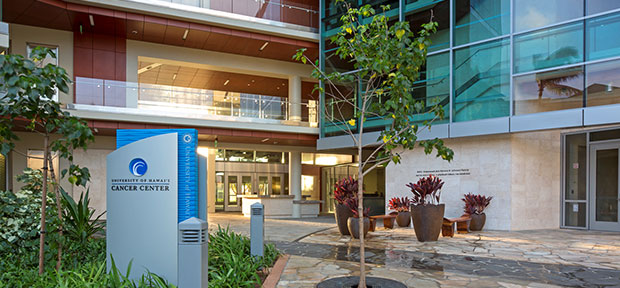
Native Hawaiians and Japanese Americans have a higher risk than other ethnic/racial groups of developing pancreatic cancer, according to a new study by University of Hawaiʻi Cancer Center researchers published in Cancer Medicine.
“Pancreatic cancer is one of the deadliest cancers. It only has a five-year survival rate of 8 percent,” said Loïc Le Marchand, UH Cancer Center epidemiologist and the Multiethnic Cohort (MEC) study co-author. “There is no screening test for detecting pancreatic cancer early, when it is most curable. Thus, it is important to identify risk factors that are modifiable such as diet and lifestyle to prevent its occurrence.”
Pancreatic cancer risk factors, including family history, diabetes, obesity, smoking and red meat intake, did not explain the higher risk for Native Hawaiians and Japanese Americans. However, researchers are on the right track to discovering why. The study also confirmed previous studies that African Americans are known to be at increased risk for the disease as well.

A better understanding of the causes of this disease is still needed through new research. Currently, MEC research on pancreatic cancer is focused on conditions related to obesity, which may be particularly important risk factors for the disease in the Hawaiʻi population.
The UH Cancer Center Hawaiʻi Tumor Registry, responsible for cancer surveillance in the state of Hawaiʻi, reports:
- There are approximately 225 new cases of pancreatic cancer diagnosed in Hawaiʻi each year, with 182 deaths.
- The incidence of pancreatic cancer is the 6th highest among all U.S. states and has been increasing over the past decades.
- Native Hawaiians have the highest mortality rate for pancreatic cancer among all the different ethnic/racial groups in Hawaiʻi.
The MEC study is a prospective cohort study conducted by UH Cancer Center and University of Southern California epidemiologists that has followed 215,000 Japanese, Native Hawaiians and Caucasians in Hawaiʻi and African Americans and Latinos in Los Angeles from 1993 to 1996. The study’s goals are to understand ethnic/racial differences in cancer risk and survival and to find ways to mitigate cancer disparities in these populations.
—By Nana Ohkawa

